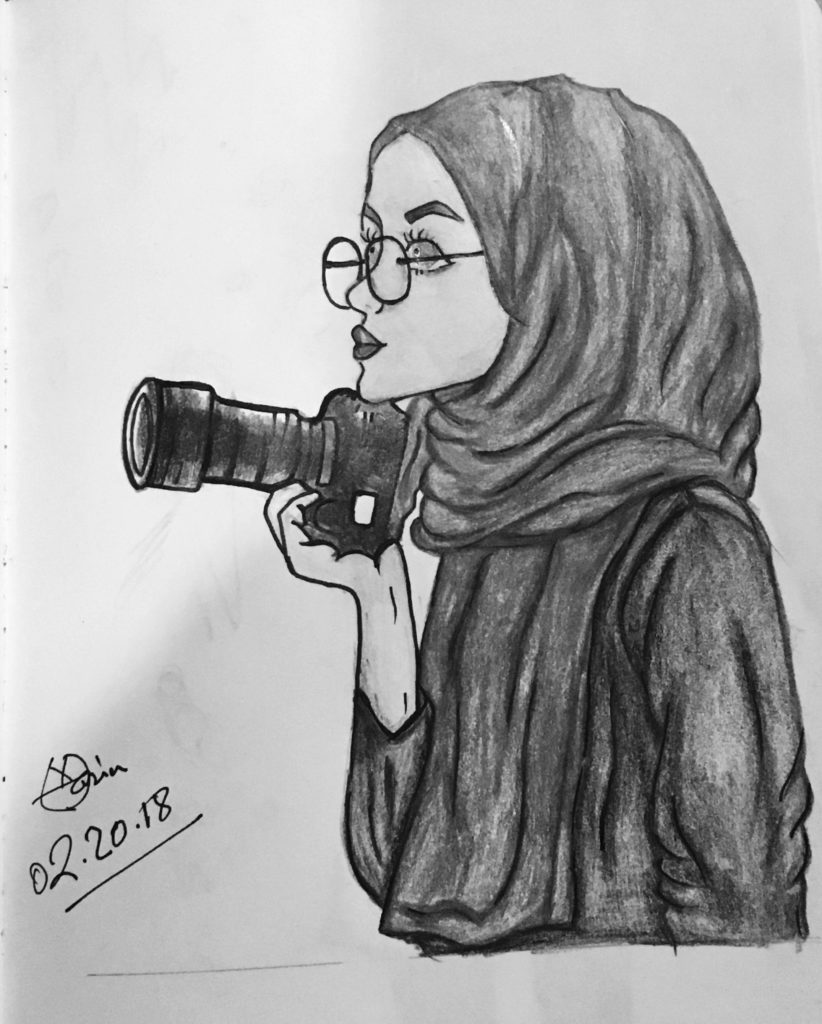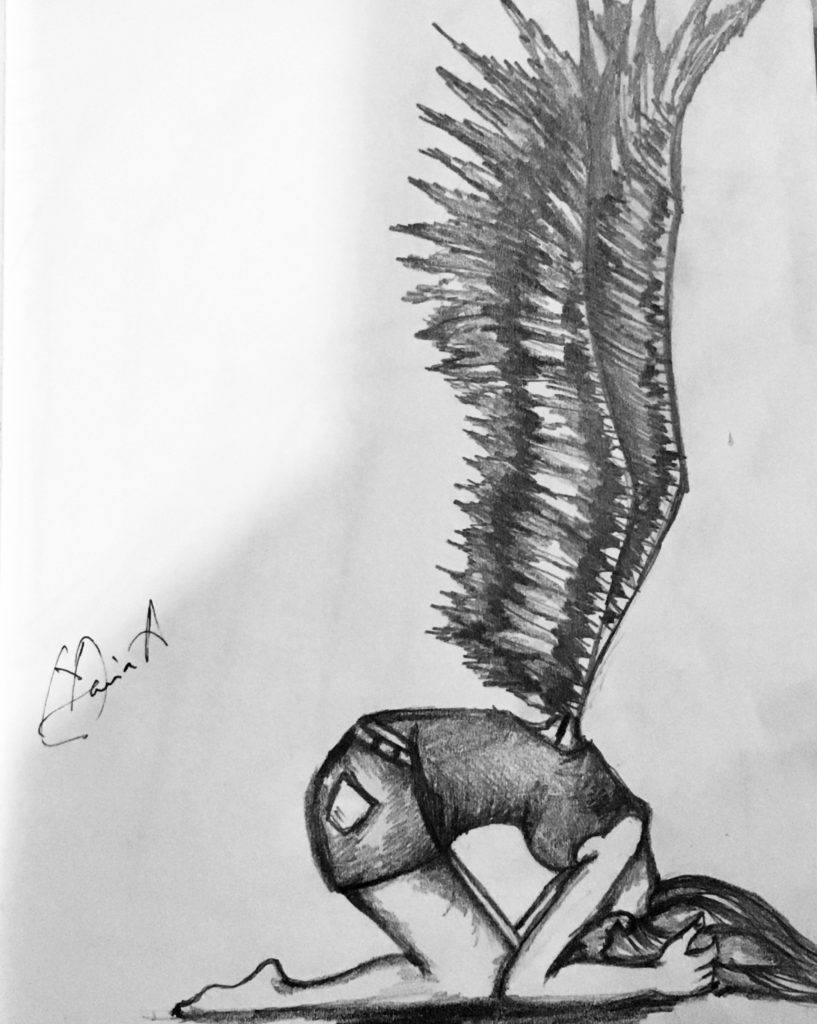As she dresses for the day, Mrs. Hitome realizes she has forgotten something important. After pinning her hijab and perfecting its placement, she smiles and affirms to herself, “now I am ready.”
Maria R. Hitome, born in Dhaka, Bangladesh came to the United States nearly three years ago, with hopes of fulfilling her dream as a successful photographer. Since her arrival, she explains how her creativity is no longer held in shackles, as she is able to photograph everything she likes, which would have been considered a sin or even a crime in her own country.
As the Islamic religion indicates, Mrs. Hitome is supposed to pray five times a day, but she reveals, “sometimes due to the amount of homework and the rush of the city I cannot do the five times that my religion indicates, but that does not imply that I don’t respect and I am not loyal to my religion. I try to finish my praying when I come back home.”

Her husband, Izaz Hitome, with whom she has been married for four years, says he admires and loves her sense of humor and tenderness and firmly supports her in all her passions. Mr. Hitome affirms that she is the best in everything she does, because she is a dedicated and passionate woman and when she sets a goal she does not rest until she achieves it.
Mrs. Hitome describes herself as an artist and feels that she was born with a vein of developed art. She remembers a time when she was in seventh grade and her father gave her a diary to write down her ideas or use it for school. Without hesitation, she started using it as a canvas for her drawings. When she transported back and forth to school, she would carefully observe everything around her and find the beauty in it to draw. Whether it was people, animals or even landscapes.

Mrs. Hitome describes herself as a firm woman in her tastes and beliefs, one of the many reasons why she decided to migrate to the United States. However, she has had to face many challenges while living in a society with many stereotypes targeted against most Muslim- Americans. Her first job was working in a store and some customers and workers made her feel uncomfortable with their snarky stares or even just by their silence. “Some of them never spoke to me and they looked at me with hatred. Their attitudes toward me was very rude. If they had to pass something to my hand, they would prefer to leave it to the side,” explains Mrs. Hitome. On several occasions, she has had to face these types of situations, and yet she still manages to look at these circumstances as proof of her faith by dealing with these challenges.
Today, she says she does not feel uncomfortable in her hijab, explaining: “the last six months, I’ve felt very comfortable and I do not care what people think of me. I would die for my hijab because it makes me different and it’s a revolution to the stereotypes of beauty that society imposes today.” Mrs. Hitome explains that even if one day she feels enlightened or in danger, she would never take it off for the sake of society.
Mrs. Hitome admits that while there are many differences between Bangladesh and the U.S., she admires most of them. Most of all, she admires that people, regardless of gender or age, can access education. In towns further from the city of Bangladesh, the girls must stay at home while the male children go to school, because women are not allowed to access education.

Despite having been raised in a traditional and humble home, her parents always supported her passion for studying and never forced her to wear a hijab. She remembers that her mother would sometimes ask if she was ready to wear it and she would say “no.” Mrs. Hitome explains that her mother always understood her decision. At the age of 16, she took part in the tradition and put on a hijab because she felt ready.
Mrs. Hitome’s big brown eyes radiate strength and are full of illusions and goals. She would like to prove that Muslim women are just as smart, empowered and capable as any other woman in the world. “I want to break all the stereotypes that society has of Muslim women. I want to show that we should not be silenced, oppressed or forced to do things. We also have a lot to contribute to society. Islam doesn’t prohibit to do study or to explore the world.”